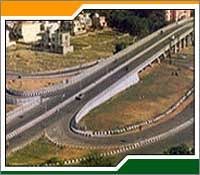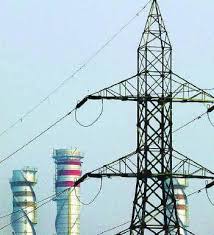
Feb 21 2010 , Mumbai
infrastructure finance subsidiary to support construction or roads,
power plants and airports. A subsidiary will help it overcome
limitations that it encounters in funding infrastructure projects within the bank.
SBI will be able to raise long-term funds through the subsidiary,
which will also not have to adhere to the norms of setting some
portion of deposits as reserves that a bank is statutorily required to.

OP Bhatt last month said the bank does not have long-term
funding resources and that the banking system under strain due
to lack long-term funding opportunities and non-performing assets.
Overall exposure to the infrastructure is also limited, as banks
cannot raise long-term funds.

The biggest hurdle for SBI providing a greater support to
infrastructure projects is non-availability of long-term funding.
The government has for long not granted the demand from banks
to allow them to issue tax-free infrastructure bon-ds for mobilising
long-term funds. As a bank, it has limited access to long-term sources
of funds and the subsidiary will help the bank get over this handicap.
v
A detailed questionnaire on the bank’s plans for an infrastructure
subsidiary was sent to the SBI managing director and group
executive (associates and subsidiaries), R Sridharan, but there
was no response, despite several reminders.

“As a bank there are a number of bottlenecks to fund infrastructure
projects due asset-liability mismatches. Banks generally tap short-term
funds, which cannot be used to finance long-term projects.
We want to overcome these bottlenecks by having a subsidiary
dedicated to infrastructure financing,” said an SBI official in theknow of the happenings, but did not want to be identified.
Project finance for SBI had 70 proposals in pipe-line with SBI’s
share of debt being Rs 30,883 crore and syndication mandates
of Rs 28,665 crore.
Compare this to the infrastructure finance
requirement, which is close to $500 billion over the past five years.
The major contributor is power sector. The total advance of the bank
at the end of the third quarter was Rs 607,154 crore, 15 per cent
growth from Rs 509,573 crore.
Whenever there are growth opportunities, SBI has been quick
to set up subsidiaries. The merchant banking was once a division
of the bank it got hived off into a subsidiary named SBI Capital
markets when the business grew in size. SBI Cap focuses on
infrastructure project advisory and syndication mandates
particularly in sectors such as urban infrastructure and power
and expected to boost the prospects for the infrastructure
subsidiary.

This will be the second initiative from SBI to finance
infrastructure outside the bank’s books. Last year in
April, SBI and Australia-based Macquire Group along
with International finance Corporation, an arm of the World Bank,
launched an infrastructure fund for equity participation in projects.

“Raising funds on the balance sheet of the subsidiary
may be advantageous rather than exposing the balance
sheet of the bank. If funds have to be raised through
the bank’s balance sheet, then SBI will have to issue
bonds which would be limited, not enough to fund the
huge requirement,” said the SBI official.

IIFCL and IDFC are the main infrastructure financing
companies, but both the institutions have problems in
fund raising and utilisation. IIFCL is governed by the
government and has to depend on the government for
allocation of funds. The refinance facility that it is expected
to provide to banks has not really got off the ground. IDFC,
an NBFC too has limited avenues to raise funds.
No comments:
Post a Comment